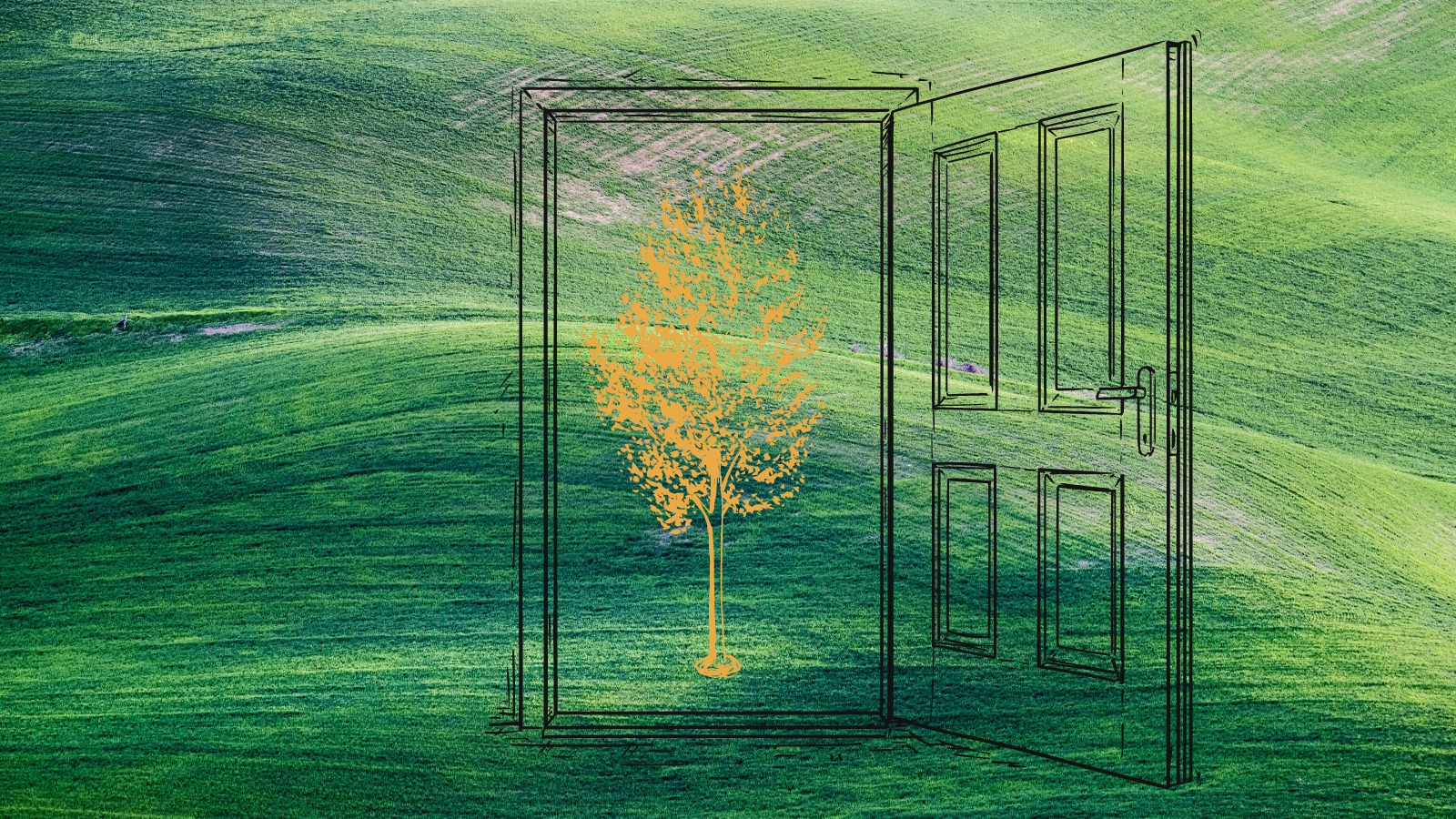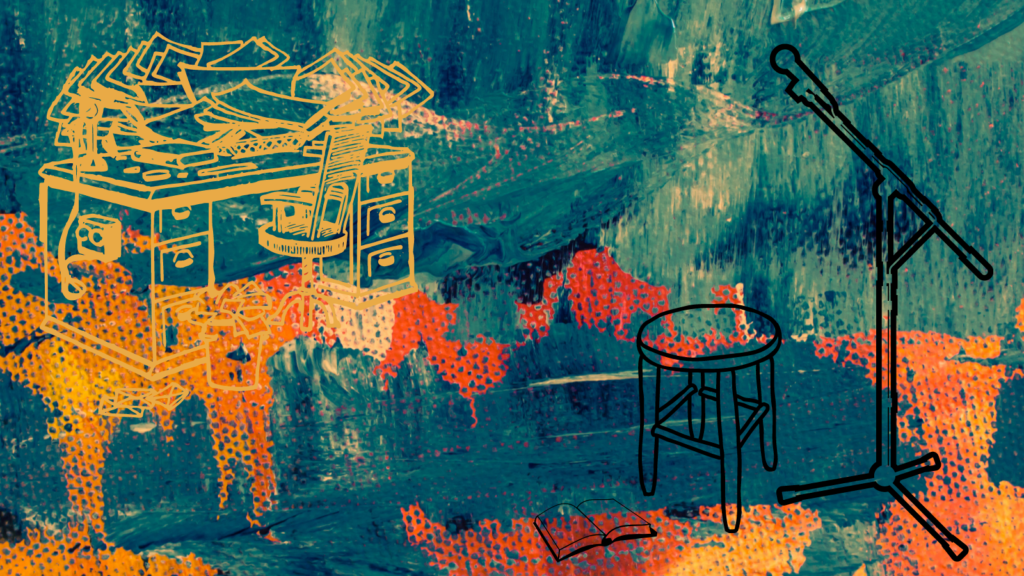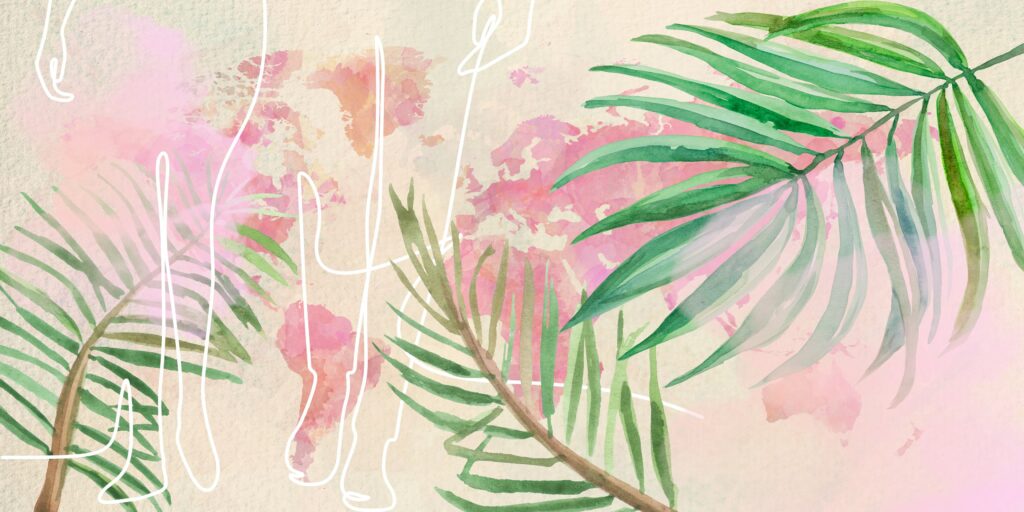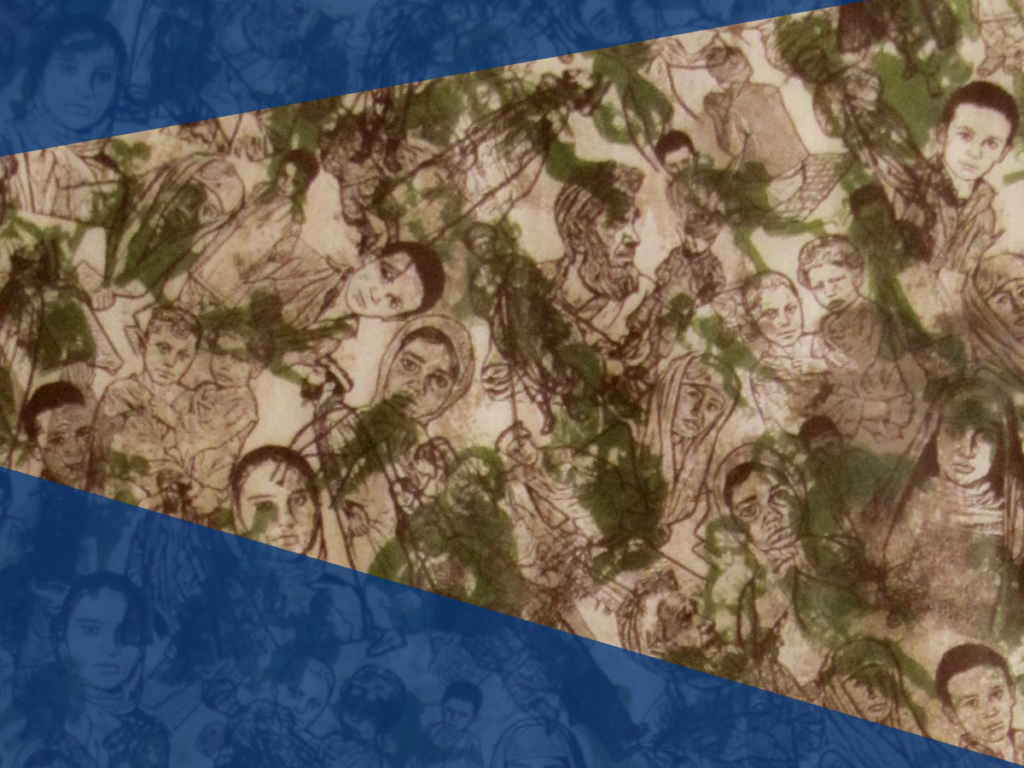AAWW’s current executive director reflects on virtual space and community

December 16, 2021
Editor’s Note: As the Asian American Writers’ Workshop celebrates its 30th anniversary, we invited current and former editors, writers, community members, and workers to make new meaning from the Workshop’s archive. Together, they have awakened AAWW’s print anthologies and journals, returned to the physical spaces of the Workshop starting from our basement location on St. Mark’s, and given shape to the stories from within AAWW that circulate like rumors, drawing writers back again and again. In revisiting the Workshop’s history, we hope for insight into the ever-changing landscape of Asian diasporic literature and politics and inspiration to guide us forward in our next 30 years. Read more in our AAWW at 30 notebook here.
It was supposed to be just a couple of weeks—a simple experiment in telecommuting. In early March 2020, when I informed the AAWW staff that we would try telecommuting in response to reports about a new virus that was causing concern, I had no idea it would be the start to nearly two years of a strange and still uncertain new reality.
In some ways, our warm and cozily lit space in Chelsea was a familiar one. I had long been a regular supporter of the Workshop and the space it so beautifully created for readers and writers in New York City. But as the new Executive Director appointed in January 2020, in those few weeks before the onset of the COVID-19 pandemic, the space and its community had turned into something new and unknown. I approached the beginning of my appointment the way I approach most new beginnings: as a listener and a learner, getting to know the people and community that I was now responsible for as if they were strangers I had just met. I had barely found my footing as the organization’s new leader when the world turned on its head and suddenly, the very heart of the organization—the physical space in which the community gathered—was no longer open.
From the original Greek diner the founders met at in 1991 to our current space on 27th Street, the act of gathering in person has been crucial to the Workshop’s programming. What did it mean for our work and our community when that was no longer possible? As an organization that has been unabashedly bold and experimental from its inception, the answer was an easy one: our community needed us more than ever, and if the only way we could gather was virtually, then that’s what we would do. We learned how to set up Zoom webinars. We remembered to un-mute ourselves when it was time to speak. We developed relationships through those boxes on a screen with our community’s children, pets, and extended family members—my own nieces have become active participants in my daily schedule of check-ins and meetings.
While we spent more time thinking of things like the lighting in front of us or the background behind us, we also managed to do something a bit more magical: we found community. It quickly became clear that while the channel was a different one—we exchanged hugs with waves to a computer screen—the camaraderie and care that we had always sought out in the physical space had, against all odds, manifested online. With so many of society’s inequities and failures laid bare by the pandemic, the need to hold on to each other was also more apparent. During the past couple years, we have managed to find pockets of true joy with so many members of our community from pals who’ve been part of the AAWW fam for decades to new friends just discovering the organization. We’ve mourned together. We’ve been angry together. But we’ve also celebrated. And learned. And become stronger.
As we look ahead to 2022, a year in which we hope to resume in-person programming and once again gather in that small space in Chelsea, we take the lessons of our digital space with us. For so long, we had claimed that the centerpiece of our programming was our physical space. What we’ve learned the past two years was that our physical space was actually just the table that it lies on—it is our community that has been, and continues to be, the centerpiece of the Workshop, serving as a guiding force for all that we do. After all, who else will gently and knowingly remind us to un-mute?
Read more reflections on AAWW’s space from Peter Ong, Jeannie Wong, Amita Manghnani, and Sophia Hussain.



